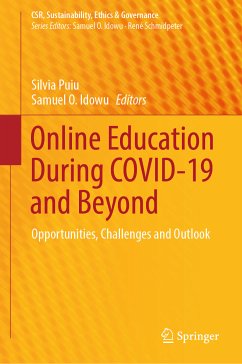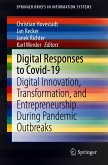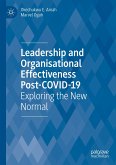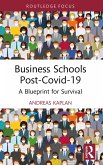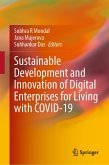A model is proposed that includes five variables: specific communication issues in online education, the ability of professors to offer online courses, the quality of online education, students' perceived stress during online education, and the technical requirements of online education.
The book will be of interest to anyone concerned with the new and future ways of teaching and learning.
Chapter "When a Phenomenon-Based University Course Went Online: Students' Experiences and Re¿ections After Sauna Bathing" is available open access under a Creative Commons Attribution 4.0 International License via link.springer.com.
Dieser Download kann aus rechtlichen Gründen nur mit Rechnungsadresse in A, B, BG, CY, CZ, D, DK, EW, E, FIN, F, GR, HR, H, IRL, I, LT, L, LR, M, NL, PL, P, R, S, SLO, SK ausgeliefert werden.

